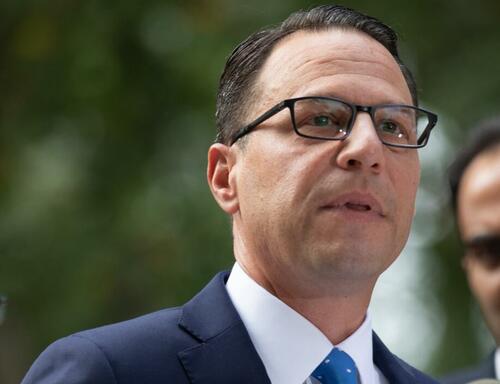For almost 20 years my bully had me in her grip. I was six when she told me our headmaster had called me fat and useless. I cried myself to sleep that night. She would regularly beat me up if she'd had a bad day and, when I was 12, she punched me so hard she dislocated my jaw, which still clicks to this day.
I was an overweight child with buck teeth, freckles and red hair, while she was beautiful and slim. She took delight in ostracising, ridiculing or ignoring me – and told me she hated me on a daily basis.
She routinely referred to me as a slug and, in one of many examples of ritual humiliation, she once ordered me to strip naked, demanding I give her clothes back after happily encouraging me to borrow them an hour earlier.
Not once did a parent or teacher come to my aid. Victoria was cunning: she knew how to hide her behaviour. But the main reason for all the adults turning a blind eye? Victoria is my sister, who's two years older than me.
Sibling abuse is often dismissed by society – referred to as 'rivalry', which suggests it's both mutual and understandable, a rite of passage almost.
There's the Cinderella fairytale, of course, but even that is about stepsisters, not blood relatives. Apart from that rather black-and-white portrayal, bullying by siblings is something of a taboo.
Yet in many ways it's not dissimilar to domestic abuse – you have to live with your bully and learn to tread on eggshells, desperate not to incur their wrath. As a result, I've grappled with low self-esteem all my life. My desperate desire to please – and so avoid the notice of bullies like my sister – led me to veer off course at school, drinking and taking drugs.
I left home at 19, purely to escape her, and the deep-seated lack of self-respect engendered by Victoria's treatment dogged me. I'd even say low self-esteem was a factor in me being raped at 21.
The anonymous woman recounts how, as a child, her sister would beat her up when she had bad days and even once made her strip naked and give her her clothes [stock image]
I was the youngest of three girls, raised in a beautiful townhouse in the South-West. My parents split when I was two, but materially we didn't want for anything. Mum was a solicitor and dad a management consultant.
We had a maid until I was nine, and I went to a co-ed school where I was happy. It wasn't a neglectful childhood, yet growing up in the 1980s, parents just let children get on with it.
One of my earliest memories is of Victoria warning me that she was stronger and older than me and that I'd have to do what she said. When I complained to Mum, she'd gently but firmly told me I had to learn to stand up for myself.
The first time Victoria beat me up, by punching me, I was five. I was so shocked I cried and cried. Mum was at work so, as usual, there was no witness to the worst of my sister's behaviour.
We shared a room, so even in my sleep I'd have no respite. I'd often wake up freezing to discover she'd pulled my duvet off in the night.
We had an older sister, Sarah, but there were four years between her and me, and our relationship during childhood was distant. Victoria never let Sarah see what she was doing to me.
As for Victoria, I still don't know what I did to earn her unending hatred. My only theory is that she was jealous of my arrival, because until then she'd been the youngest.
Was my crime getting more attention than her as a newborn? Victoria would attack me a couple of times a week, cunningly never hitting my face or limbs where bruises would show. I would try to protect myself, but she'd sit on me and pin me down. It was genuinely horrific. I'd disassociate from my little body, going to a different place in my mind.
Then there were sly pinches to my tummy and punches to my ribs. No one saw those markings.
When she went too far, I'd occasionally get a letter from her saying how much she loved me (though never apologising). I remember feeling so confused.
After our parents split, we'd spend two weeks at Mum's and then two weeks at Dad's. It was only at our mother's that my sister felt she had free reign to attack me.
My father, who quickly remarried, was very strict. Although we were largely left to our own devices at his rambling farmhouse, Victoria didn't put a foot out of line in front of him.
My stepmum was a difficult woman to be around, too. Now I recognise that she'd been trying and failing to have her own children with Dad, losing 11 babies via miscarriage.
Little wonder she had zero interest in being a stepmum to three girls. As for my father, I never enjoyed being with him. I found him a cold and remote man. It was only my mother I could talk to, despite her failure to intervene.
I frequently told her that I hated my sister, and begged her to let me live somewhere else or for my sister to go elsewhere.
Even she could see this wasn't a normal request for a ten-year-old, and arranged for me to see a therapist on a weekly basis.
I'd cry profusely in the sessions, telling the therapist how hurt I was that my sister repeatedly hit me and called me fat, useless and ugly. Yet I don't remember learning anything helpful – certainly it never translated into anything changing at home. The only benefit was it made me open to therapy as an adult.
As a ten-year-old, she had weekly therapy, often crying profusely as she recounted her troubles with her sibling during the sessions [stock image]
I have truly never understood what motivated Victoria, who was never sent for therapy, as far as I knew.
In her twenties, she was diagnosed with a benign brain tumour. I've often wondered if this might have affected her personality in some way, but I've never known for certain.
Still, the effects on me were profound. Perhaps unsurprisingly, I sought refuge in food, especially sugar, and was very overweight while at primary school. I also sucked my thumb until the age of 13 and wouldn't go anywhere without my blankie or my pink bunny rabbit. Victoria often told me my parents had wanted to disown me as a baby. Growing up utterly believing this, my personality was moulded into a desperately insecure little being. I was very quiet at home, constantly trying to avoid Victoria's wrath.
I took some degree of comfort from the fact it wasn't just me: Victoria would also go to war with Sarah. They'd fall out whenever Victoria took Sarah's INXS cassette tape. I'd try desperately to keep the peace when they fought but they'd simply talk over me or ignore me.
I'd also do anything to please my parents – just to get a crumb of attention from them. But doubtless, they didn't notice me because I kept myself invisible.
I can see now, of course, that Victoria had some serious issues – yet they were never addressed. She would convincingly lie when I told my parents what she'd done to me.
And even when she punched me in the jaw, my parents, with bigger fish to fry, simply left us to it. As I didn't require medical treatment, Victoria got away with it.
The one bright light of my childhood was Tina, the maid we had until I was nine. I absolutely loved her. She was the only adult who saw what was going on and would nurture and comfort me. She did everything she could to protect me, and was even brave enough to tell my sister off if she did something that made me cry.
Most importantly, Tina was a loving presence, happy to be around me, or let me sit with her while she was cooking. I know she tried to tell my mum about Victoria because I'd hear them talking sometimes – I still don't understand why my mother didn't listen.
I was devastated when Tina had to leave because Mum could no longer afford to pay her. One of the worst days of my childhood came a year later, when I was ten and had invited some friends to the house after school.
My mum was working, as usual, and Victoria answered the door, only to let my friends in – and lock me out. I was left on the doorstep for an hour, being allowed back inside when my sister knew Mum would return home. Victoria played with my friends, who, it seems, did not object.
The bullying continued into my teens. When Victoria learned to drive at 18, I'd sometimes be in the car with her because one of our parents would have insisted she take me with her into town. On three occasions, I said something she didn't like and she tried to push me out of the passenger door while we were moving – once on a roundabout.
As a youngster she dropped out of school and turned to alcohol and drugs to cope with the constant bullying - and was raped at 21 in London
Another time, she told me I could borrow her clothes and I took it as a friendly overture. But an hour later, when we were in the car together, she ordered me to take them off, then kicked me out of the car. She left me almost naked – in just my bra and knickers – in the street.
She did return for me minutes later, but refused to let me put her clothes back on, so I had to be driven home in my underwear. I never borrowed anything of hers again.
By this point, my life had already taken a worrying turn. At 13, I had fallen in with the wrong crowd at school and began smoking and drinking. Mum didn't notice, and when Dad asked why I smelled of smoke (he would fetch me from a party and comment), I'd lie and say it was my friends doing it. At 16,
I dropped out of school – I didn't care about my academic trajectory, I just wanted to be accepted. Then, at 19 and desperate to get away from my bully and forge my own path, I left home to become an au pair. I moved to London, alone and pretty vulnerable, and ended up being raped at 21.
Looking back, I feel as if I had no self-esteem, thanks to Victoria's bullying and my parents' distance, and put myself in danger as a result.
After all, I'd been repeatedly in dangerous situations at home – this was just one more to add to the list.
It took many years to rebuild my shattered confidence. Slowly, I learned to put myself first, throwing my energy into work, and I now run a successful estate agency.
I accept I'm guilty of being a workaholic, but that's the way I've learned to suppress the dark feelings that come from being the miserable Cinderella of my family.
Throughout my 20s, I drank a lot in social situations to overcome my inhibitions. If anyone chose to date me I'd be so suspicious of their motives, no relationship lasted longer than a fortnight.
That changed when I had therapy in my early 30s. A good friend recommended a life-changing (for me) psychologist who helped me to see that my sister's abuse wasn't my fault.
Until then, I'd been convinced I'd never get married – and I definitely didn't want to bring children into this world.
But in my mid-30s, I met Tom, a kind, patient man – an engineer – on a dating site. He believed my account of my childhood, and was so sympathetic. We got married five years after meeting, and had our children two years later. When I discovered I was having a daughter, my first reaction was terror – I was terrified that history would repeat itself.
When two other girls followed, I made it my priority to teach them about being kind to others and to each other; that they are a team, rather than rivals.
They are now tweens and I am so proud and grateful to say that we're all very close. As for my family, you may well wonder why I've still not challenged my mother about the fact she never took my side. The truth is, I am still too frightened to discover the answer. Whatever she says, I know it will disappoint me.
As a result, I don't see my parents or my eldest sister very often. I'm in a family social media group with them and that's it.
And it won't surprise you that I have as little as possible to do with Victoria. She has a son and is a single mother, and has never once acknowledged or apologised for her appalling behaviour towards me.
For many years, I tried to be the better person and make peace with her, despite frequently falling out. But, at last, I've decided for my sanity that our relationship is over.
I stopped speaking to her 18 months ago when we had yet another disagreement – this time about her borrowing money from our mother. I have finally recognised that she was never a sister to me, so I'm losing nothing.
If I could go back in time, I'd tell my childhood self that you don't need to accept bullying just because your bully is your sister. You have every right to be in the world, too.
Of course, I can't rewrite history. Instead, I focus on my own daughters. I cuddle each of them every single day and tell them how much I love them. When they have issues, we work through them together, and I make certain each child is heard.
Every year I organise a photo album of our previous 12 months. Unlike me, they will have happy memories to look back on – the loving childhood that sadly I never got to enjoy myself.
All names and identifying details have been changed.

 By Daily Mail (U.S.) | Created at 2024-11-21 13:07:03 | Updated at 2024-11-24 01:28:52
2 days ago
By Daily Mail (U.S.) | Created at 2024-11-21 13:07:03 | Updated at 2024-11-24 01:28:52
2 days ago








